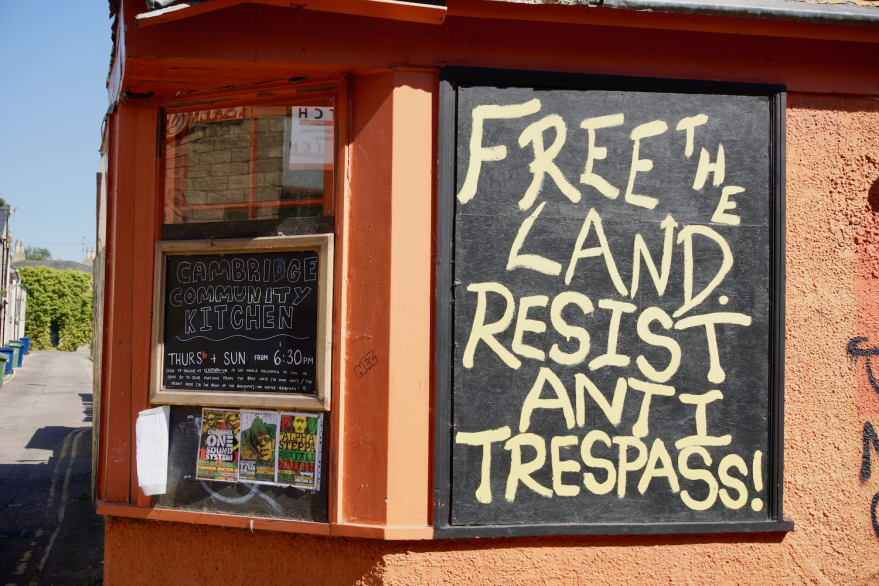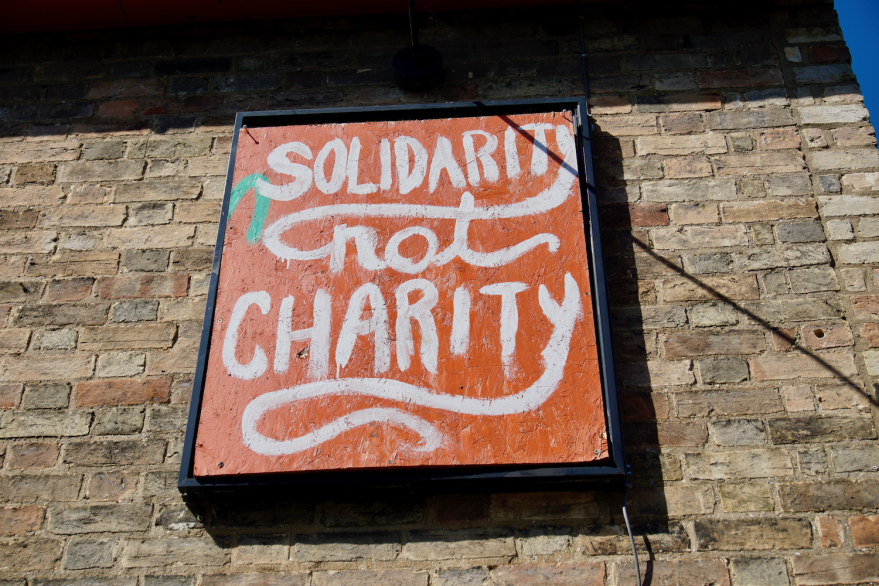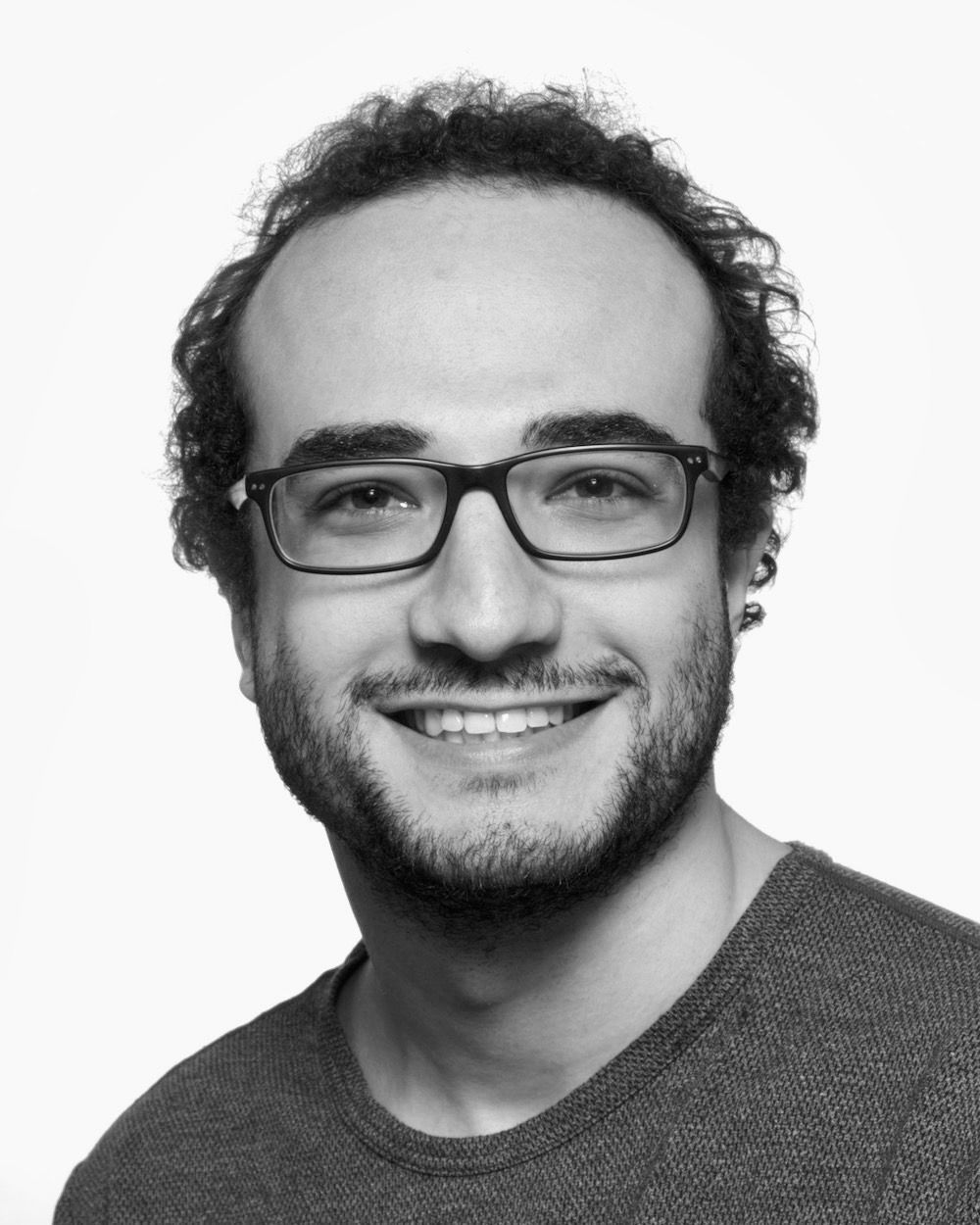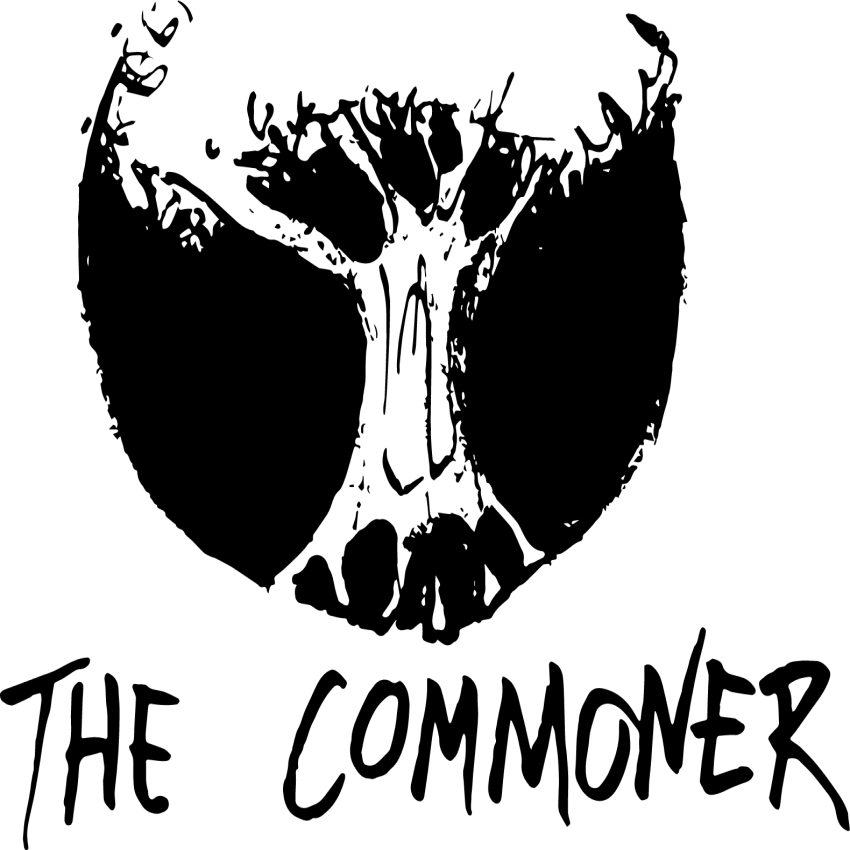Cambridge Community Kitchen (CCK) emerged out of the same anarchic current that created The Lockon (see this interview), a squat based in Cambridge, UK. Throughout COVID, CCK has bypassed local government to prepare and deliver vegan food to rough sleepers and to anyone else who requests it. Like the squat, it operates through an organised non-hierarchical model which could serve as a blueprint for other groups moving forward. It differentiates itself both from state-funded initiatives and from other volunteer programs in Cambridge in that it steadfastly refuses to collaborate with the police and puts no pre-conditions (drug use, criminal record, immigration status) on aid.
Badger, a founding member of CCK, offered their time to The Commoner to discuss their work in providing some measure of food security to those in need around the city.
[Editor’s Note: In the interest of disclosure, while Søren Hough has not participated with the Kitchen in any way, his partner has volunteered with the group on two occasions.]
Søren Hough
Thanks for taking the time out! If you want to introduce yourself and what you do with Kitchen, that’d be a great start.
Badger
Cool. I’m Badger, she/they, and I have been at The Lockon for a year and a half. CCK kind of morphed and grew [out of that] from the very start. There were chilli Tuesdays and Sunday brunches, which were really small scale, maybe ten to twenty people. When I moved in here, I had previously been working for RCK (Refugee Community Kitchen) in Calais. So I had the model in my head of how to do bulk cooking and distributions. We were like, ‘Yeah, let’s turn this into a bigger service.’
When we first started, it was Lockon people running it and putting our own kitty toward CCK. And then it kind of snowballed in terms of the need for it, the people who are requesting food, and also the involvement of volunteers. So now it’s very much its own entity. Lots of people from The Lockon are still involved in various different ways, but it’s not really a Lockon thing now. CCK runs and it’s just hosted here.
I personally do the Kitchen coordination. That’s my side of things, that’s where my skill sets lie. I am terrible at spreadsheets. [Laughs.] So yeah, that’s basically what I do. That involves just making sure that we’ve got stocks, we’ve got gas, that maintenance things eventually get done. There are definite issues with the fact that it’s a squatted building. There are obviously some things that we can and can’t do in terms of fixing, rewiring the electrics, or you know, big jobs like that. We just try and work around it, and do what we can. I’m just really conscious that I am standing here being like, ‘Yeah, I do the maintenance jobs.’ and there’s this massive duct taped hole in the wall. [Laughs.] And then I help run the shifts.
So in CCK, we tried to organise as horizontally as possible. Obviously, with the type of service that it is, and the fact that we run completely off of volunteer labour, there are people that have more or less capacity and are involved to greater and lesser extents. So hierarchies of knowledge do emerge. I think it’s kind of inevitable, but we tried to make sure that we’re putting regular training and skill shares in place, and make all the roles accessible to people and make sure that we review and change them. The admin stuff [has] been really concentrated on a couple of people, and so we’ve been having meetings to talk about how we can change that around, how we can get more people involved in doing those tasks, which is going well.
We run in three teams. Four teams, actually. There’s the deep cleaning team that comes on Sunday before the shift begins and to help keep the kitchen in good shape. Then there’s the cooking teams, the admin teams, and the delivery teams. I mean, obviously people move between them; they all kind of operate as independently as they can whilst also being in one organisation. So for example, I’ve been here since the start of CCK. I’ve never done a delivery shift, I’ve never been a delivery coordinator, I have no idea how any of that stuff works. I stay in my lane. [Laughs.]
There are people in each team who coordinate with the delivery team on a shift-by-shift basis. And they just look at where the routes are, how can we match up riders to the right routes, and get their bags, la la la. Then kitchen-wise, there’s a weekly coordinator role because it’s a lot of making sure that we have things in place for the shifts as they come up. And then admin-wise — there isn’t a coordinator really, it’s just a very hectic group chat and people just doing tasks randomly.
We originally didn’t have any kind of hierarchy in the kitchen shift. But it quite quickly transpired that that kept people off coming in getting involved because they didn’t feel confident enough to just roll with the shift. So we have now team leads, and anyone can train up to be a team lead. It just means that you have worked maybe three or four shifts, and you want to do it. And then you just get trained — any team lead can also train up other team leads. We try and keep it as open as possible in that sense. And then the [cooking] team, we basically just decide in advance what the meal is going to be based on what ingredients we have.
Søren Hough
You mentioned you did refugee work in Calais. Do you see this as a similar sort of project?
Badger
Yeah, I mean, I think in terms of the Kitchen, it’s really similar. But there are distinct differences — we’re meeting a very different need here. Obviously it’s still food, it’s still that people are hungry. But in Calais, it’s because people are hemmed in by armed police and are evicted every 48 hours and don’t have the physical means to cook for themselves. If you have kitchen pots and pans, they will get taken in the next eviction. So it’s very direct in that sense. I really struggled a lot when I worked there with the fact that it can never go anywhere. It’s meeting the same need every day, and never can help the structural issues that are behind it. And I think any kind of aid organisation faces that issue.
But here, we serve such a wide range of people. There are folks who are in the rough sleeper community. There are also teachers who just don’t have the time to do their work and cook for themselves. There are people who are going through a tough time with their mental health. There are people who are in isolation for COVID and come in for food when they come out of isolation. It’s such a broad range. And I think because of that, and the fact that we do have a lot of people that both receive meals and come and volunteer, it feels like everyone’s more interconnected. It’s more of a community vibe. We serve anyone who needs the food, no questions asked.
The fact that we exist is kind of ridiculous. I don’t know if Glade maybe mentioned this… CCK got an award from the mayor of Cambridge last Christmas. We made a lovely little glitter macaroni frame for it, because we take it very seriously. It was an award for service to the community in COVID. We’re like, ‘Thanks for your printed out certificate. We’re literally doing your job for you.’ [Laughs.] Maybe you could, I don’t know, give us some money, at least do the thing of feeding people?
Søren Hough
There’s something like four to twenty times as many vacant living spaces as there are rough sleepers in Cambridge — I did the maths recently. That’s a fixable problem. [Editor’s Note: One report suggests there are 655 homes in Cambridge which have been vacant for more than six months. There are an estimated 33–165 rough sleepers in the city.]
Badger
That really doesn’t shock me. Those numbers are horrific. Yeah, there’s so many things that we wish we could be doing. And again it’s being tied down by that, ‘Okay, there is a very immediate need that we’re trying to meet with what we do.’ But we’ve been thinking about how we can try and grow from the base of CCK to help in different ways, or be more supportive with longer term changes rather than only [focusing on] here and now. [For example,] do you know about Cambridge Solidarity Fund? That’s a sister organisation to us in the sense that it was started by people who met each other as volunteers here. They’re providing grants for people but on a mutual aid basis, so it’s no questions asked. They’re very small grants, but it’s all just from donations, and they just give that to other people. So that’s where we’re trying to branch out a little bit.

Søren Hough
What is The Lockon/CCK’s relationship with the council, police, the mayor, and so on?
Badger
They’ve been leaving us alone recently, which is great. We had a few… run-ins with the council, shall we say? We had a particular issue with waste disposal. We have council bins, and the refuse collectors weren’t taking our bins because they had been told not to. And we weren’t sure whether it was because we were a squat, or because they think it’s commercial waste, or whatever. But anyway, they weren’t. And the environmental health team had been coming around, snooping in our bins and telling us off. It was honestly ridiculous.
There’s a few things like that where we’ve had to kind of wiggle around or really assert what we’re doing and why we’re here and why we need our bins collected. But I think, yeah, ultimately, we do have a couple of people on the council who’re at least supportive of what we do and have actually gone really above and beyond in terms of offering things to us to help us when we’ve had struggles. The end point of it is we’re doing a job that is of service to the community. You can give us an award and then put your money where your mouth is rather than just making our lives difficult.
Søren Hough
You said they were going through your bins?
Badger
Yeah.
Søren Hough
That’s wild. Have you had any issues with the police, as well?
Badger
Not really, actually. They’ve genuinely just left us alone, which is pretty cool. This is an incredible situation for a squat, the fact that we’re still here. And the fact that we have this ability to have volunteers coming in and out and things like that. It’s very, very rare. But I think at this point, we seem to be quite… I mean, obviously it’s a squat — we could get evicted. It could go through the courts, we could get evicted at any time. But right now, it seems quite stable. And we have people in the community that really support us. We have a lot of people who’ve interacted with the space in various different ways. So yeah, I think there’s a little bit of… it wouldn’t necessarily look good to be badgering us constantly because people like us. [Laughs.]
There’s a really good quote from a squatting community in — I can’t remember where it was, somewhere in Scandinavia — but the quote is ‘neighbours are the best barricades.’ That’s the kind of the policy that we have here, in short.
Søren Hough
The Black Panthers had this sort of dichotomy of revolutionary programs versus survival programs. Mutual aid was a survival program for them, but others have argued that mutual aid is itself revolutionary. Do you have any thoughts given your work?
Badger
So yeah, I think, again, it comes from this constant frustration with the fact that we are limited by our capacities, and we are kind of limited by providing food for today, not tomorrow — immediate rather than structural. And so we get stuck in a cycle where the plaster gets ripped off, and then we put the same plaster on the same wound the next day. But I do think that this organisation and also the squat have been really transformative for a lot of people in a lot of ways. We’re trying at the moment to have some reflection sessions on the internal structure of CCK to be able to explain to people better how it works and how to get involved. Because a lot of people, when they get on board, they’ve never been involved in a non-hierarchical organisation, they don’t really understand the concept of mutual aid. It’s not something that’s crossed their paths before. So it’s quite interesting to see people kind of really come into their element. And I think that’s something really great that a non-hierarchical organisation can do. It’s like, ‘Okay, you want to do this, here’s all the tools, here’s all the skills, do it.’ That’s something you don’t necessarily get in a lot of places.
So when people think you can really help, people just trust each other in a way that you don’t necessarily see elsewhere, and then you can let your creativity and your drive come through, which is really cool because a lot of people don’t get that elsewhere in their lives. At work, we get a particular task where they tell you what to do, and you can’t draw outside the lines.
Everyone who lives here has varying different reasons why they live here, but it means a lot to everyone to be here. I think that element of space as a base has been so incredible for so many people. The fact that we’re then able to use this space not only for the community kitchen but also for meetings… We did ‘drag night’ last night and that’s a space where we really can make it open to people who’ve never explored that side of themselves, or who really want a safe space to try out their performances or whatever. I think there’s no bounds to what you can do with a space except for what you put out there. It’s really, really cool.
Søren Hough
You’re showing the community a way of doing things that sort of completely circumvents local government structures. Do you think that that in itself has value in demonstrating a different path for society?
Badger
Definitely. And I think just creating a space where people can be there for each other? I mean, I know that social isolation is talked about a lot, but it really is so intense how little you are given a space to care about others outside of your immediate circle in your average day-to-day life.
We have delivery volunteers quite regularly stop and chat and talk to people that they’re serving and ping questions back to us: ‘Where can I refer this person?’ or ‘Can someone help with this?’ Like household tasks or driving someone to a hospital appointment, or whatever. People will jump in and help out when they can. I think it’s really amazing to have that network where people can start… I say learning, it’s not learning — I mean, it’s innate to all of us — but get the space to flex that muscle of caring for each other and building real community. It’s so special.
Søren Hough
Engendering mutual aid as a core principle, I hear you. I understand CCK began in response to COVID. Do you see this continuing after the pandemic stops being as much of a primary concern?
Badger
I don’t see a reason why we would stop if there’s a need — people need the food. I think, even if people weren’t in food poverty, or in a situation where they felt like they needed to use this service, I would like to think it would be great to still do it anyway. I think food and space should be free for everybody. So I don’t want to stop, even though it does burn people out sometimes.
Søren Hough
But from speaking to Glade, it sounds like you have a good model for letting people take some space for themselves.

Badger
Hard learned lessons, though. [Laughs.] Regular reviewing of this structure where you’re like, ‘This is not working for me.’
Søren Hough
But that’s really informative. The whole reason that we do these interviews at The Commoner is to provide different models for how these things can be done around the world.
Badger
If anyone wants to get in touch with CCK and The Lockon on social media, we’ll share tips about how to set up kitchens and things like that!
Søren Hough
How can people support the Kitchen and The Lockon if they are interested in getting involved, even from afar? Do you have a mechanism for people to support you financially?
Badger
The Lockon doesn’t have that. We occasionally run events that fundraise for other things, like last night, we were raising money for supporting some young trans comrades. But other than that, we don't have any formalised fundraising. But CCK has an Open Collective page so we also have a website so if people go to the Cambridge Community Kitchen website, then there’s all the information there about volunteering or donating money — or even just following us on social media and being like ‘Good job, guys!’ [Laughs.]
Søren Hough
Thank you so much — really appreciate your time.
This interview has been edited for clarity. You can register to volunteer with Cambridge Community Kitchen or donate directly to the project. You can follow The Lockon and CCK on Instagram, Facebook, and Twitter.
Special thanks to our patrons, who make everything we do possible:
Mr Jake P Walker, Joseph Sharples, Josh Stead, Bliss, Hol, Aryeh Calvin, Rylee Lawson, Meghan Morales, Kimonoko, Squee, Manic Maverick, Maria Rahim, Choatic Capybara, Christian Kennedy, Anti Allting, Cy.Maggran, and Columba John.
If you would like to support us and help us grow, consider becoming a Patron:




